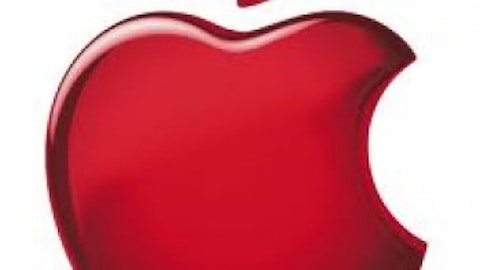A lot of people got rich trading Research In Motion Ltd (NASDAQ:BBRY) during the past few months. Since bottoming above $6 in late 2012, the stock has multiplied to just under 18. But now the price trades near $13.

I certainly applaud the savvy traders able to exploit a beaten-down security. But the excess share price growth is not tied to reality.
To be fair, BlackBerry does have three major upsides. First, the company has no debt and a lot of cash – $2.73 billion as of December 1 – meaning that it has time to stay in the game. For losing companies, cash is KING.

These positives mean that BlackBerry has new technology and time to test it out. So the building has not burned down – but it is time to yell “Fire!” because BlackBerry is losing its core business. Here’s why.
1. Losing Out on Big Business
According to a recent Wall Street Journal story:
“About three years ago, some 2,500 employees at Land O’ Lakes Inc. used company-issued BlackBerrys. Today, the number at the Minnesota butter maker is down to 12. Despite this week’s launch of a new BlackBerry, Barry Libenson, the Company’s chief information officer, said he is no longer planning on supporting BlackBerrys.”
Why? The “vast majority” of employees prefer different phones, he says, and he is concerned with BlackBerry’s financial position (read: losses).
The fears are legitimate. Before Apple Inc. (NASDAQ:AAPL) unveiled the iPhone in 2007, RIM’s client base was 71% comprised of corporations. Now that number is estimated to be between 20% and 25%. Moreover, a Forrester Research study polled 1,600 IT decision makers at firms in North America and Europe. The results show that 54% of them use a BYOD, Bring Your Own Device, program, cutting out BlackBerry as the de-facto device.
Also, don’t forget that large companies typically move slowly. Thus many may not be able to support RIM’s new operating system until March or even until the second quarter, meaning that phone sales would be delayed.
2. Tumbling Market Share
For a firm that once held a firm grip on smart phones, BlackBerry has fallen a long way. Granted, the market has grown exponentially and competition has picked up, making it hard to keep such high market share. But currently the company has just a 4.6% share of the market.
To make up the difference in market share, BlackBerry will need to pick up new individual users, as opposed to businesses. The downside is that monthly service fees are estimated at $1-4 per user for individuals versus $7-10 per user for corporations.
That’s a lot of profit ground to make up.
Throw in the fact that BlackBerry is offering a “tiered” menu system (meaning that some of its service revenues will likely be trimmed), and couple that with the fact that focused outsource companies like MobileIron and Good Technologies are helping companies manage multiple devices. Now BlackBerry’s future potential revenue problem looks far worse.
3. The Other Guys Keep Getting Better
The new phones are BlackBerry’s first in 18 months. RIM felt that it just couldn’t get its formula right. And while BlackBerry kept delaying the “ship” date of its new phones, its competitors continued to refine their products.





